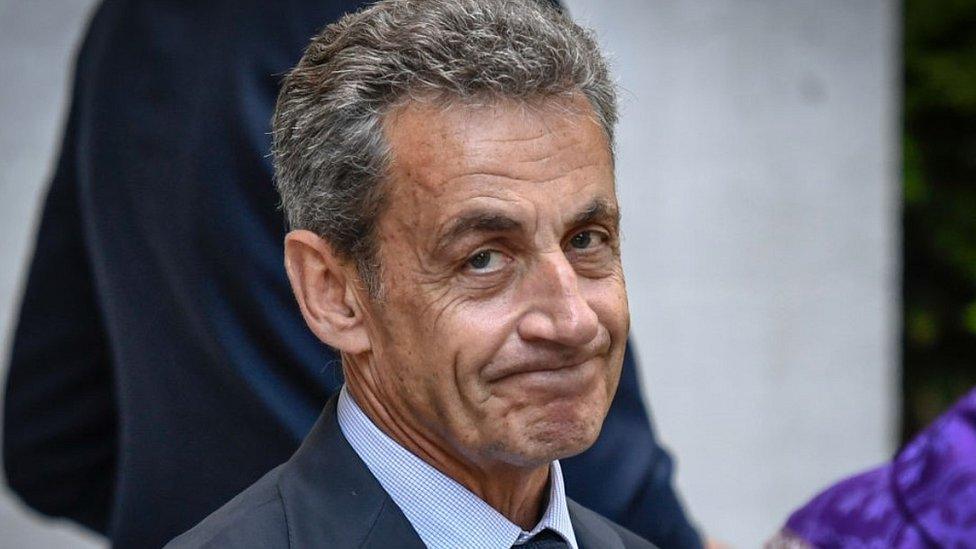Nicolas Sarkozy to seek French presidency again
- Published
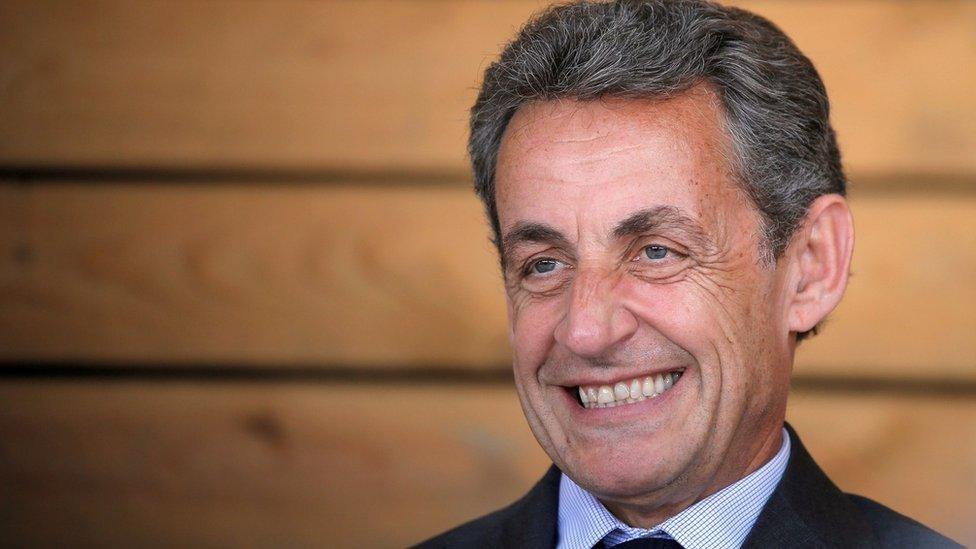
Four years after he left the Elysee, Nicolas Sarkozy is keen to return
Former French head of state Nicolas Sarkozy has announced that he is a candidate to run again in next year's presidential election.
In order to stand, he must first win his centre-right Republicans party's primary in November.
Mr Sarkozy said he "felt he had the strength to lead the combat at such a tormented moment in our history."
No-one doubts his energy, but a number of obstacles must be overcome if he is to fight his way back to the Elysee.

First term legacy
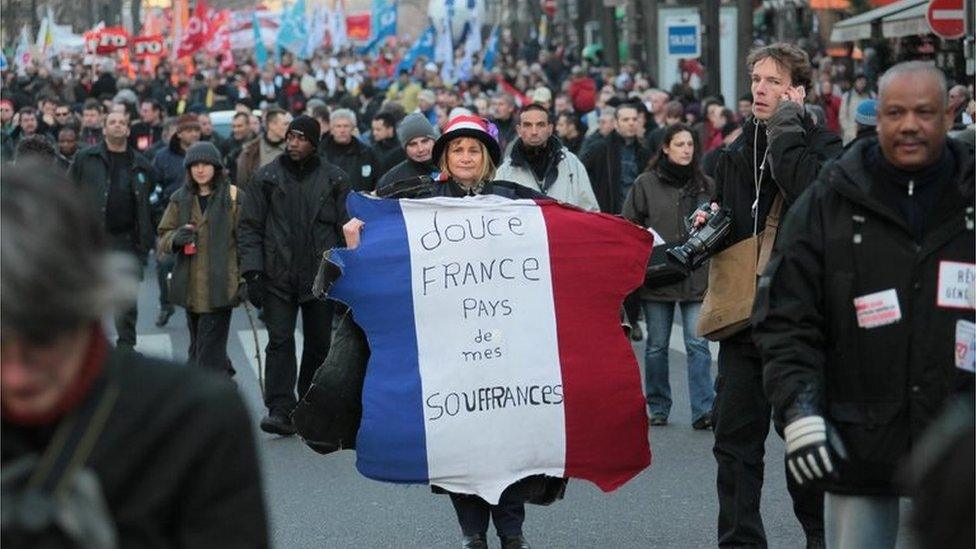
Mr Sarkozy's time as president was marked by the 2008 global financial crisis
Nicolas Sarkozy served as French president from 2007 to 2012, and the country he left behind as he walked from the Elysee was not a happy one.
The campaign promises of a land where people could "work more to earn more" had vanished. Unemployment was back near 10%; the deficit ballooning; and the much-vaunted "rupture" with the country's uncompetitive past as much a dream as five years previously.
Mr Sarkozy could argue - with some justice - that all his plans to rewire the economy had gone down the drain by the 2008 world crisis.
But still the man with all the answers turned out to be mainly mouth.

Rival candidates
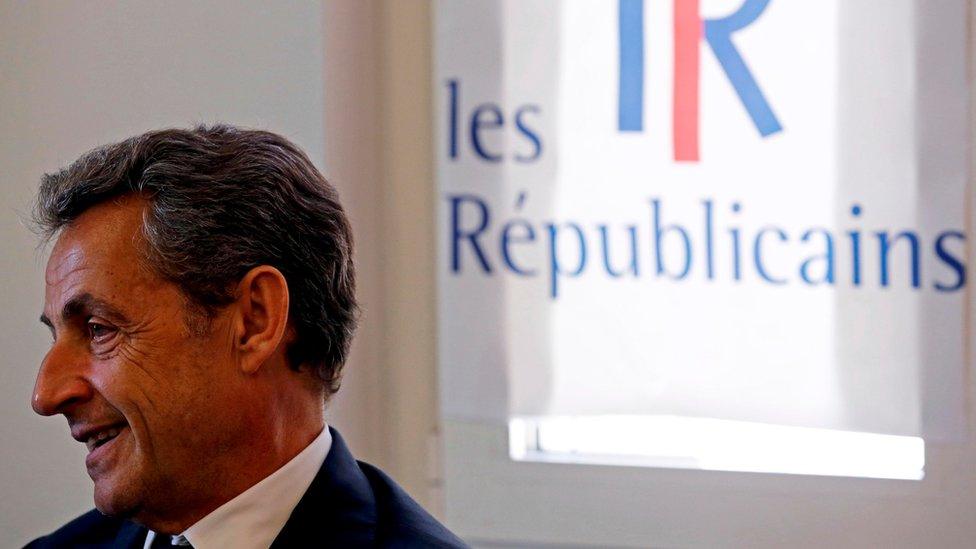
Nicolas Sarkozy is one of many people seeking to be the Republicans' candidate for French president
Nicolas Sarkozy may want to be the centre-right candidate next April, but sadly for him others have the same idea.
There are in fact 10 other runners in the November primary, most of whom have no chance whatsoever and are merely putting down markers for the future. A couple are serious rivals.
There is Mr Sarkozy's former Prime Minister Francois Fillon - the man who learned to swallow hard and keep looking impassive through whatever his master's latest putdown.
And then there is Alain Juppe - another former prime minister. Right now Mr Juppe is in fact the favourite to win in the November primary - so Mr Sarkozy has a tough and potentially bitter fight ahead.

The law
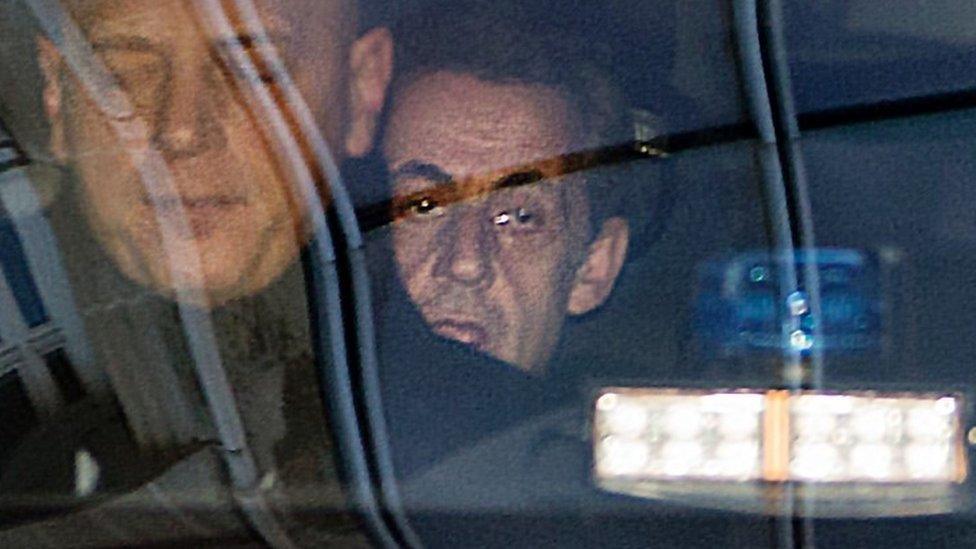
Mr Sarkozy was placed under formal investigation after hours of questioning in February
Mr Sarkozy's enemies have always given themselves heart from the thought that if all else fails to bring him down, justice will.
The list of "affaires" in which the former president is embroiled is long and very complicated. Two stand out.
In the first, Mr Sarkozy is accused of knowingly exceeding campaign funding limits in the 2012 election.
In the second, he is said to have put pressure on a judge to reveal details on another case in which he was implicated.
In both of these affairs, Mr Sarkozy is "mis en examen" - in other words he is formally the target of a judicial investigation that might well end in a trial.
Were that to happen in the weeks to come, his chances would be scuppered.
Luckily for Mr Sarkozy, the wheels of French justice grind exceeding slow. Still - the law is a weak spot.

Bling
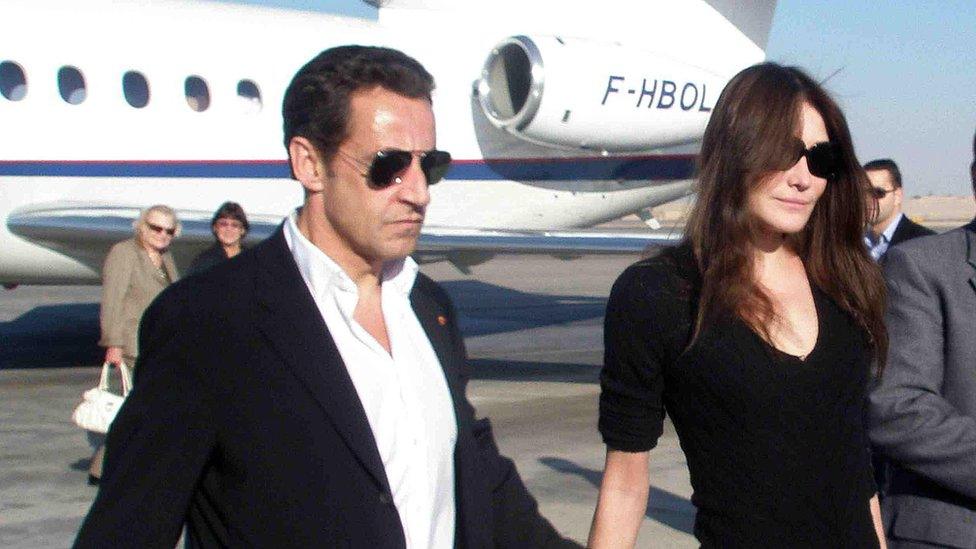
Mr Sarkozy and his then-new love Carla Bruni flew to Egypt for Christmas in 2007
Bling is such an annoying, meaningless expression - but Mr Sarkozy undoubtedly suffered from his supposed affinity for a certain kind of lifestyle.
He came to be viscerally loathed by a large part of the population - not just as a political figure, but for the kind of man he was.
In truth, his lifestyle was not that different from other French leaders'.
Carla Bruni was no liability: in fact she is quite admired.
Far more problematic was Nicolas Sarkozy's odd personality: impulsive, cocky, braggadocio masking some inner insecurity.
Many people didn't like it, and they still don't.

The not-again factor
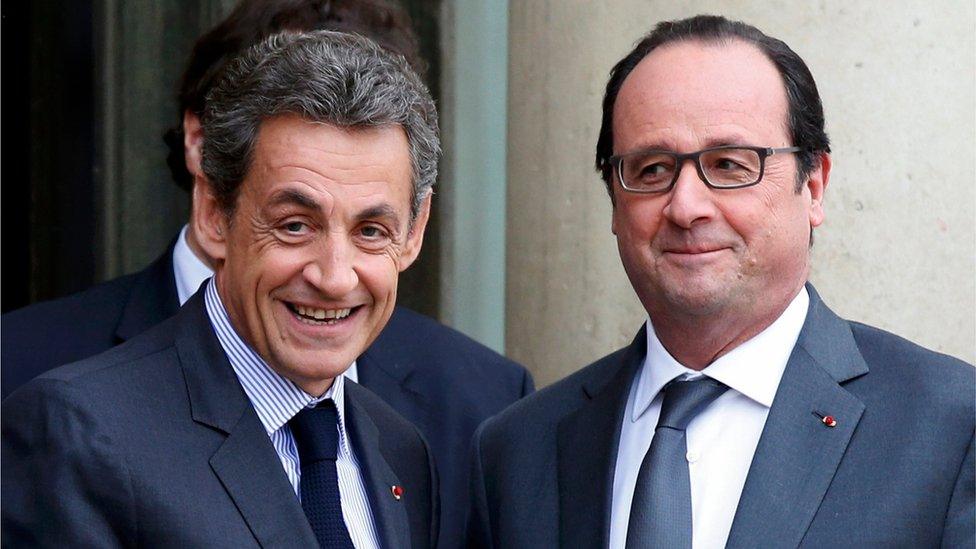
These two, again?
If Nicolas Sarkozy ends up against Francois Hollande in 2017 (and it is perfectly possible), it will be an exact re-run of 2012.
Could there be a more crying indictment of French politics? And a more potent argument for Marine Le Pen, the leader of the far-right National Front?
- Published29 March 2018

- Published8 January
